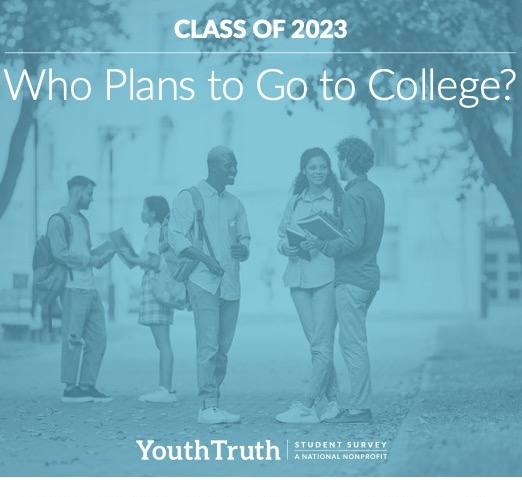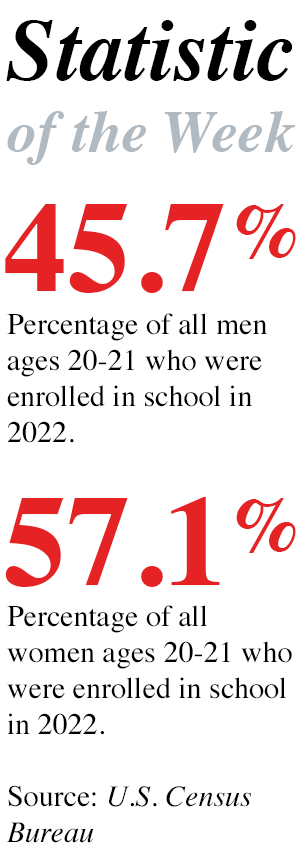The Widening Gender Gap in College Aspirations
Posted on May 31, 2023 | Comments 0
 A new survey by YouthTruth looks at the college plans of the high school class of 2023. The authors note that “polls show that Americans are losing faith in the value of a college education, and many, including high school students, are debating whether college is ‘worth it.’ College enrollments are in decline, and undergraduate degree attainment numbers fell last year for the first time in a decade. The percentage of high school graduates enrolling in college immediately after high school has dropped, and there is widespread alarm that community colleges in particular are in trouble.”
A new survey by YouthTruth looks at the college plans of the high school class of 2023. The authors note that “polls show that Americans are losing faith in the value of a college education, and many, including high school students, are debating whether college is ‘worth it.’ College enrollments are in decline, and undergraduate degree attainment numbers fell last year for the first time in a decade. The percentage of high school graduates enrolling in college immediately after high school has dropped, and there is widespread alarm that community colleges in particular are in trouble.”
So researchers set out to measure the college-going plans of this year’s high school graduates to determine if the trends they observed will hold into the future. The report found that nearly three out of four seniors (74 percent) in the class of 2023 aspire to go to college. However, only 66 percent of this year’s graduates expect to go to college.
There are striking differences in the patterns of college aspirations and expectations by gender in the class of 2023. Some 83 percent of female high school seniors say they want to go to college and 77 percent believe they will actually enroll. For males, 68 percent said they wanted to go to college, but only 57 percent thought they would actually enroll. That’s a 20 percentage point gender gap among college seniors who think they will enroll in college.
In 2019, 74 percent of male high school graduates said they wanted to go to college. This year, the figure has dropped to 68 percent.
Some 54 percent of female high school graduates this year said they expect to enroll in a four-year college. Only 39 percent of male high school graduates said they expect to enroll in a four-year college. Another 23 percent of female high school graduates said they plan to attend community college. For male high school graduate the figure was 19 percent.
The authors conclude that “this report shows, for all too many of America’s youth, the road to college remains obscured, blocked, or just plain closed. And, since 2019, successfully navigating the road to college has become even more challenging for many. From college counselors and admissions officers to policymakers and philanthropic funders the time is past due for all adults concerned with equity of educational opportunity to tune into the perceptions of students themselves and enlist young people as partners in constructing more clearly marked paths that are open to all who aspire to college.”
Filed Under: Enrollments • Gender Gap • Research/Study








